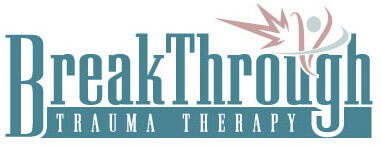Did you know you can pass trauma to your children genetically and behaviorally? Humans are a by-product of nature and nurture. Nature represents epigenetics. According to research, trauma leaves a chemical mark on genes, which alters the genes’ expression.
Epigenetics is not mutation. It does not affect the DNA base sequence but modifies how the body interprets the DNA sequence.
Behavioral-wise, your upbringing and societal exposure also affect how you deal with trauma. Exposure to violence, neglect, lack, or abuse influences behavior. It may make you anxious, fearful, depressed, violent, or withdrawn. Your children or dependents learn from your verbal or nonverbal behaviors and may subconsciously express them as learned behavior.
The Impact of Generational Trauma
Generational trauma is physically and mentally burdensome. It makes adapting and adjusting to future and present fears, uncertainties, or traumas nearly impossible or taxing.
● Trauma makes families vulnerable to mood disorders, from depressive and anxiety disorders to substance use abuse and eating disorders.
● Maladaptive behavioral coping from trauma can make families learn to be distrustful, distant, hurtful, suicidal, or vengeful.
● Hurting people hurt people. The likelihood of becoming a victim of abuse is higher in families dealing with intergenerational trauma.
● Generational trauma increases your risk of developing problematic or unhealthy relationships due to projected trauma. Maladaptive survival skills such as hyper- vigilance, people-pleasing, and defensiveness interfere with a person’s ability to cultivate healthy bonds, boundaries, and, eventually, relationships.
● Generational trauma also affects physical health. Exposing the body to never-ending stress increases your susceptibility to cardiovascular illnesses, digestive issues, and hormonal imbalances.
Ways to End Generational Trauma
Trauma creates a vicious cycle of mental conditions within family lines. However, you do not have to be a slave to trauma. Several tried and tested ways can help you develop resistance and break trauma cycles.
 Seek Knowledge and Awareness
Seek Knowledge and Awareness
Recognizing and confronting the influence of generational trauma is the first step towards healing and breaking the cycle. Look for behavioral patterns in your family that exacerbate your depression, anxiety, and destructive behavior. Understand why you shy from commitment, depend on validation, or binge drink or eat.
Find the root cause of the problem and acknowledge its presence, influence, and impact on your life. Knowledge helps you develop informed decisions about confronting your trauma instead of pursuing ineffective solutions. It requires reflection and uncomfortable inquisitions in your family.
Be Open to Change
Generational trauma manifests as repetitive patterns. Embracing change motivates you to work on breaking the cycle. It also influences your rigid and limited outlook on life outcomes. Challenge your destructive thinking patterns and nuanced outlook of the world.
Change is not a passive event. It requires deliberate and calculated effort. Positive change is uncomfortable, time-consuming, and costly, but its effects are long-lasting and beneficial. It may mean ending an abusive relationship, confronting abusers, or changing environments. You can be free from the seemingly inescapable generational trauma with unceasing willingness and determination to break from the cycle.
Allow Yourself to Grieve
You have gone through a lot of unnerving events. Grieve your losses. Mourn for the life you lost. Acknowledge the impact of your failures and pain, whether time, resources, innocence, or opportunities. Validate and honor your family's traumatic experience to get rid of the emotional burden, process the trauma, and strengthen your emotional resilience and resolve for change.
Prioritize Self Care
Reclaim your sense of self and well-being. Here are trauma-informed self-care practices that can help you manage trauma symptoms positively.
Practice Mindfulness
 Mindful living has effective grounding techniques to manage overwhelming emotions and events. It helps you focus and appreciate the present. Through mindfulness, you can learn to cultivate relationships by actively listening, reflecting on interactions, and embracing deductive reasoning on pressing matters. Mindfulness frames the mind toward gratitude instead of worry and dissatisfaction over insufficiencies. It also pushes you toward healing and peace of mind.
Mindful living has effective grounding techniques to manage overwhelming emotions and events. It helps you focus and appreciate the present. Through mindfulness, you can learn to cultivate relationships by actively listening, reflecting on interactions, and embracing deductive reasoning on pressing matters. Mindfulness frames the mind toward gratitude instead of worry and dissatisfaction over insufficiencies. It also pushes you toward healing and peace of mind.
Establish Healthy Boundaries
While you love your family, they are also grappling with trauma, and that interaction may be impeding your journey toward healing. You do not have to cut them off. Regulate the degree of your interaction to avoid unnecessary hurt, compassion fatigue, burnout, or people-pleasing tendencies. Recognize your emotional limits and make your loved ones aware.
Practice Journaling
One effective way of avoiding internalization and rumination is through reflection. Journaling is an effective tool for reflective trauma processing. It offers a panoramic perspective of your situation, revealing the intricacies of your emotions, actions, and consequences. Journaling also documents your progress or regression.
Value Your Health
 Nutrition is essential for a healthy mind. Eat foods that enhance your mental functioning. Vitamin D and B complex-containing foods boost nerve performance and repair. They are also vital elements in neurochemical production and regulation, influencing mood stability.
Nutrition is essential for a healthy mind. Eat foods that enhance your mental functioning. Vitamin D and B complex-containing foods boost nerve performance and repair. They are also vital elements in neurochemical production and regulation, influencing mood stability.
Remember to hydrate. All biochemical reactions occur in a water medium. Ensure your water has sufficient electrolytes to enhance osmosis in cells.
Prioritize rest time. Get at least 8 hours of sleep regularly to help your mind and body heal and rejuvenate.
Join a Supportive Community
 Human beings are not islands. You cannot overcome trauma effects alone. Research shows belonging activates the reward pathway, which is responsible for motivation, satisfaction, and happiness. The reward pathway inhibits the stress response system, which sustains trauma- related symptoms.
Human beings are not islands. You cannot overcome trauma effects alone. Research shows belonging activates the reward pathway, which is responsible for motivation, satisfaction, and happiness. The reward pathway inhibits the stress response system, which sustains trauma- related symptoms.
The stress response is responsible for enhancing hypervigilance, negative thinking patterns, irrational fear and anxiety, and maladaptive addictive behaviors. A supportive group helps you rationalize thoughts and emotions. A social group is also excellent for developing accountability, especially for destructive behavior such as substance abuse, promiscuity, or living life on the edge.
Consider Trauma Therapy
Trauma is complex. It is impossible to unpack, process, and overcome it alone. Give trauma therapy a chance. A counseling psychologist has the training, resources, and experience to unbundle generational trauma. You can benefit from their professional services with your family to help you heal from years of hurting and internalized turmoil.
Leverage the support and accountability a therapist provides to your advantage. You will also learn beneficial adaptive techniques and behaviors that are useful beyond the confines of therapy.
Contact Us
